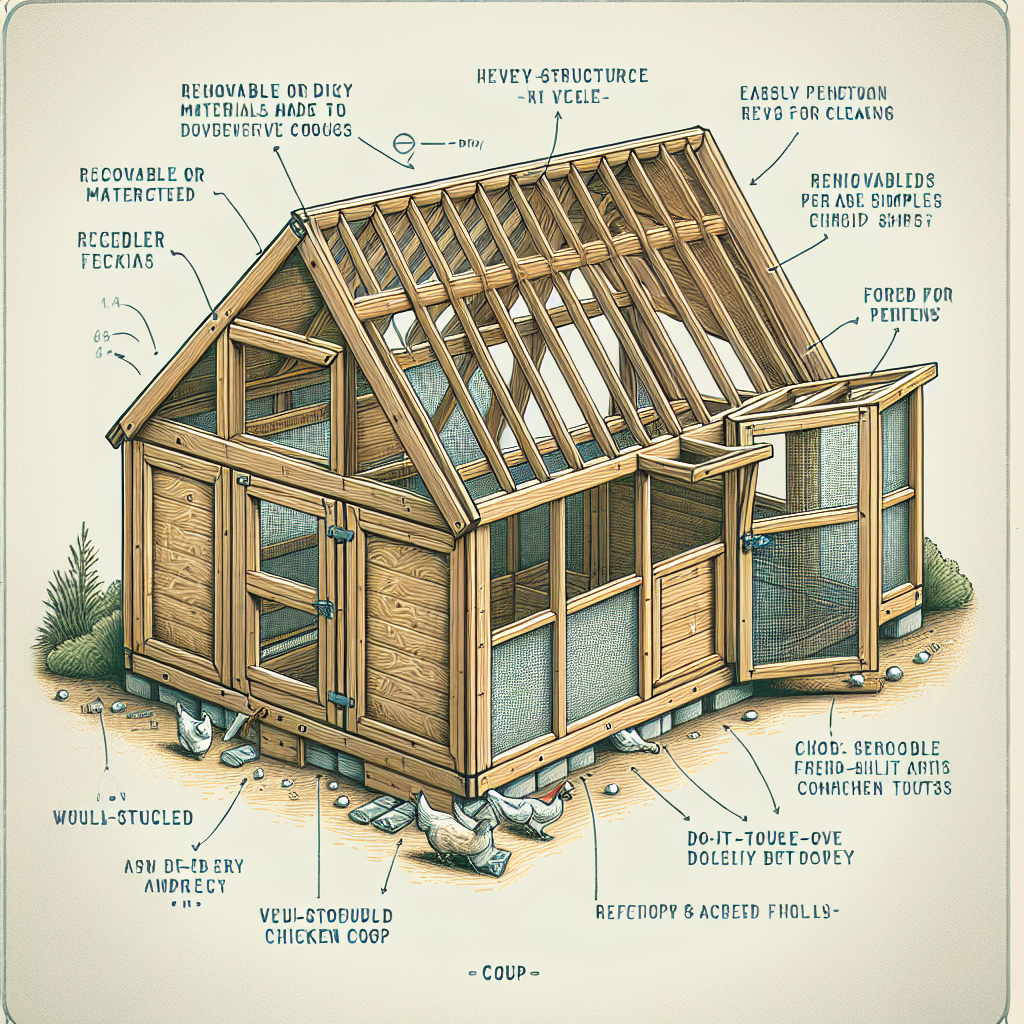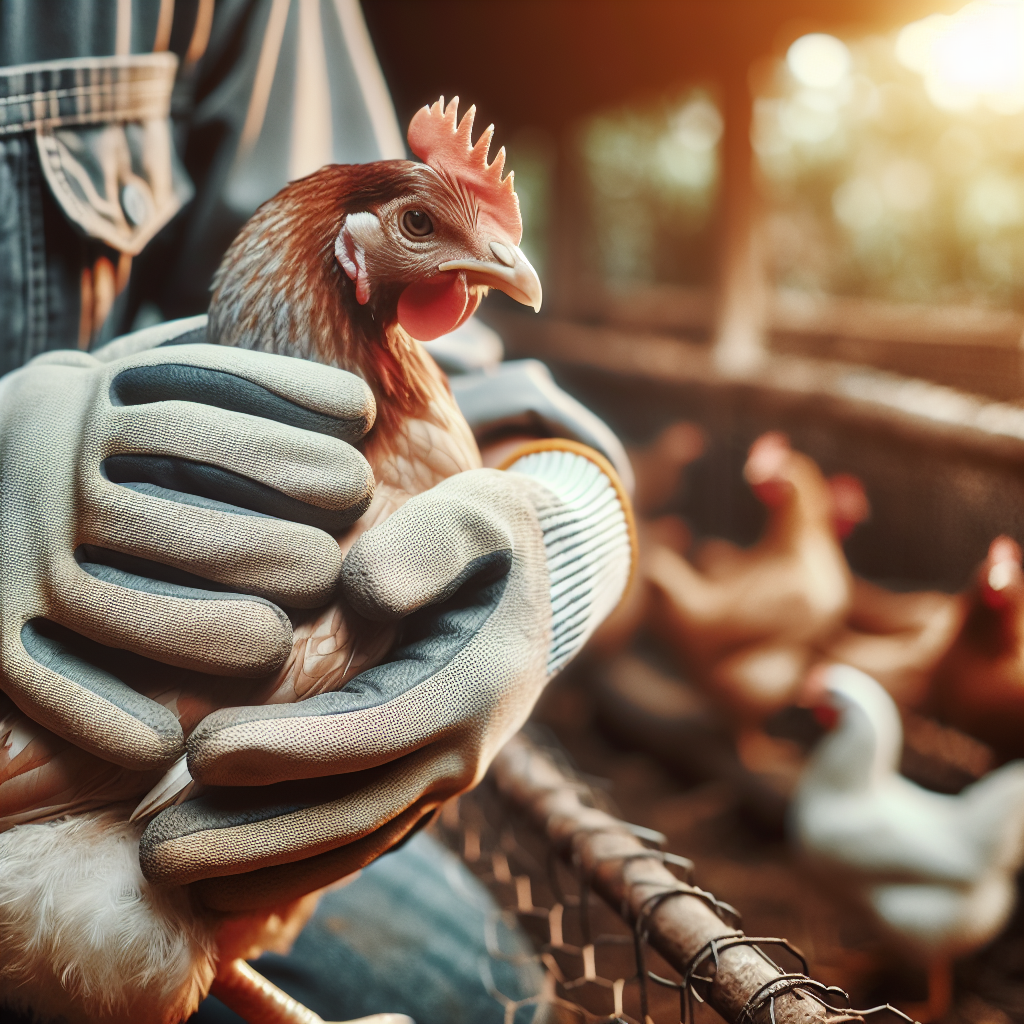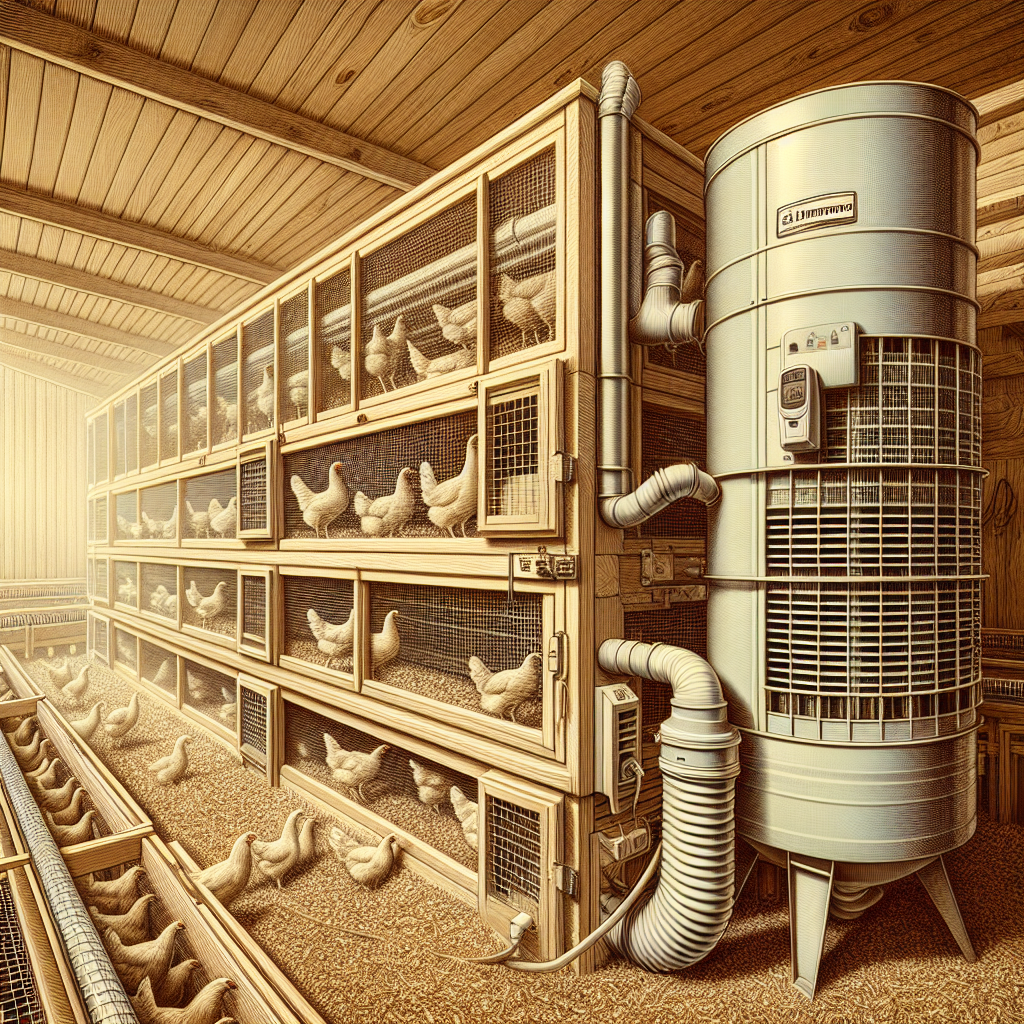Maintaining a chicken coop can sometimes feel like a never-ending task, with constant cleaning, feeding, and upkeep to ensure the health and happiness of your feathered friends. But fear not! You might be delighted to learn that there are a multitude of DIY solutions and handy hacks that can make chicken coop maintenance a breeze. From innovative ways to keep the coop clean to creative solutions for providing fresh water and food, these simple tricks and tips will have you spending less time on chores and more time enjoying the company of your clucking companions. So, let’s explore the world of DIY chicken coop hacks and discover how they can simplify your maintenance routine.
Choosing the Right Coop Design
When it comes to choosing the right coop design for your backyard chickens, there are a few important factors to consider. One of the first things to think about is the size and space requirements that your chickens will need. You want to make sure that the coop is large enough to comfortably accommodate the number of chickens you plan to keep, and that they have enough room to move around and engage in natural behaviors like scratching and dust bathing.
In addition to size, you should also consider the ease of cleaning and maintenance when selecting a coop design. A coop that is difficult to clean can quickly become a breeding ground for bacteria and pests, so it’s important to choose a design that allows for easy access to all areas of the coop. This will make regular cleaning and maintenance tasks much simpler and more efficient.
Finally, you’ll want to choose materials that are durable and easy to work with. The coop should be able to withstand the elements and protect your chickens from predators, so selecting high-quality materials is essential. Additionally, materials that are easy to work with will make the construction process smoother and more enjoyable.
Building the Coop with Maintenance in Mind
Once you’ve chosen the right coop design, it’s important to build the coop with maintenance in mind. This means incorporating features that make cleaning and ventilation easier, as well as selecting materials that are resistant to moisture and pests.
One important aspect of coop maintenance is regular cleaning. To make this task easier, it’s important to create easy access points for cleaning. This could include removable or hinged panels that allow for easy cleaning of hard-to-reach areas, as well as access doors that make it easy to get inside the coop.
Ventilation is also crucial for maintaining a healthy coop environment. Installing removable or hinged panels for ventilation will allow you to easily adjust airflow and circulate fresh air throughout the coop. This will help prevent the buildup of ammonia and other harmful gases, which can lead to respiratory issues in your chickens.
Lastly, using materials that are resistant to moisture and pests will help prolong the lifespan of your coop and reduce the need for frequent repairs. Opt for materials like pressure-treated wood or metal roofing that can withstand the elements and resist rotting or warping.
Implementing Time-Saving Feeding and Watering Systems
Feeding and watering your chickens can be time-consuming, but with the right systems in place, you can save yourself both time and effort. Consider installing automatic or gravity-fed feeders that can dispense food on a schedule or as needed. This way, you won’t have to manually feed your chickens multiple times a day and can ensure they always have access to food.
Similarly, setting up a water delivery system that reduces the need for frequent refills can save you both time and water. This could include installing a water line that automatically fills waterers, or utilizing large capacity water containers that only need to be refilled periodically.
Another innovative solution for saving time and resources is to utilize self-watering containers for plants inside or near the coop. This way, not only do your chickens have access to fresh water, but your plants also benefit from a self-watering system that requires less maintenance.
Utilizing Simple Cleaning and Sanitizing Techniques
Keeping your coop clean is essential for the health and wellbeing of your chickens. Luckily, there are a few simple cleaning and sanitizing techniques that can help make this task more manageable.
Regularly removing and replacing bedding material is a key aspect of coop maintenance. This will help keep the coop clean and dry, reducing the risk of bacterial growth and odor. Implementing a deep litter system can further aid in composting and odor control. With this method, you gradually add more bedding material on top of the existing litter, allowing it to break down and create a nutrient-rich compost.
Cleaning and disinfecting the coop on a regular basis is also important for preventing the spread of diseases. Use a safe and effective disinfectant to thoroughly clean all surfaces, paying special attention to areas where bacteria and parasites may hide. Regularly inspecting and maintaining your cleaning tools, such as brushes or mops, is also essential to ensure their effectiveness.
Integrating Natural Pest Control Methods
Pests can be a common issue in chicken coops, but there are natural methods to help control them without the use of harmful chemicals. By harnessing the power of beneficial insects, herbs, and flowers, you can create a coop environment that deters pests and promotes a healthy ecosystem.
Introducing beneficial insects like ladybugs and nematodes can help control pests such as mites, fleas, and flies. These insects prey on common coop pests, reducing their populations naturally. It’s important to research which beneficial insects are suitable for your specific pest problems and ensure they are safe for your chickens.
Planting herbs and flowers around the coop can also help repel insects. Lavender, mint, marigold, and rosemary are known to have natural insect-repellent properties. Not only do these plants provide a pleasant aroma, but they also add beauty to your coop surroundings.
Implementing predator deterrents is another essential aspect of pest control. Motion-activated lights or netting can help keep predators at bay by discouraging them from approaching the coop. Consider installing predator-proof fencing and reinforcing coop doors and windows to add an extra layer of security.
Implementing Management Strategies for Health and Hygiene
Maintaining the health and hygiene of your chickens is crucial for their overall wellbeing. By implementing specific management strategies, you can help prevent diseases and injuries, ensuring that your flock thrives.
Practicing biosecurity measures is essential to prevent the spread of diseases among your chickens. This includes keeping a clean and sanitized coop, quarantining new chickens before introducing them to the flock, and restricting access to visitors or other animals. Regularly monitoring your chickens for signs of illness and seeking veterinary care when necessary is also important in maintaining their health.
Providing dust baths or sandboxes for your chickens allows them to naturally clean themselves. Chickens love to roll around in dust or sand, which helps keep their plumage clean and free from parasites. Having dedicated areas for dust baths will minimize the spread of dirt and dust inside the coop.
Regularly trimming your chickens’ nails, beaks, and feathers is another important aspect of management. Overgrown nails can cause discomfort and potential injuries, while overgrown beaks can make it difficult for chickens to eat properly. Trimming feathers can prevent them from becoming damaged or matted, reducing the risk of infection or injury.
Maximizing Egg Collection Efficiency
If you’re keeping chickens primarily for their eggs, maximizing egg collection efficiency is likely one of your top priorities. There are several ways to make this process easier and more streamlined.
Creating easy-access nesting boxes is key for efficient egg collection. Install nesting boxes at a height that allows you to comfortably reach inside and retrieve the eggs without straining. Make sure the boxes are spacious enough to accommodate your chickens comfortably and provide enough privacy for them to feel secure while laying their eggs.
Consider implementing a rolling or tilting system for egg collection. This allows the eggs to gently roll out of the nesting boxes onto a collecting tray or area, reducing the risk of eggs being cracked or damaged during collection. This method can save you time and minimize the chances of breaking eggs.
Installing motion-activated lighting inside the coop can stimulate egg laying, especially during darker winter months when daylight is limited. Chickens are more likely to lay eggs when they have sufficient light, so providing extra illumination can boost egg production and make collection more frequent and efficient.
Employing Waste Management Techniques
Waste management is an important aspect of coop maintenance, as it helps reduce odors and provides valuable resources for your garden. By implementing a few simple techniques, you can effectively manage chicken waste and turn it into a beneficial resource.
Composting chicken manure is a great way to create nutrient-rich fertilizer for your garden. Collect the manure and mix it with other organic materials such as straw, leaves, or kitchen scraps. Over time, the composting process will break down the waste and transform it into a valuable soil amendment.
Utilizing deep litter systems in your coop can also aid in waste management. By adding a thick layer of bedding material, such as straw or wood shavings, you create an environment where the waste is absorbed and broken down by beneficial microorganisms. This not only helps control odor but also creates a fertile compost that can be used in your garden.
Another option to consider is vermicomposting, which involves using earthworms to break down the waste. This method is particularly effective for food scraps and other organic materials. The worms consume the waste and turn it into nutrient-rich castings, which can be used as a natural fertilizer for your plants.
Incorporating DIY Security Measures
Protecting your chickens from predators is paramount, and incorporating DIY security measures can provide an extra layer of defense. By implementing a few simple strategies, you can help keep your chickens safe and secure.
Building a sturdy fence or barrier around your coop and chicken run will help prevent predators from gaining access. Ensure that the fencing is buried at least a foot into the ground to deter digging animals. If you have particularly persistent predators, consider adding an apron or skirt to the bottom of the fence to further discourage them.
Installing locks or latches on coop doors is another important security measure. This will prevent break-ins by predators that may try to force their way into the coop. Choose high-quality locks or latches that are sturdy and reliable.
Implementing a surveillance system or using motion-activated cameras can further enhance security and provide you with peace of mind. These systems can help you monitor the coop and its surroundings, allowing you to quickly identify and respond to any potential threats.
Maintaining Coop Health through Regular Inspection
Regular inspections are vital to ensure the ongoing health and safety of your chickens. By conducting routine checks, you can identify and address any issues before they escalate and potentially harm your flock.
During inspections, carefully examine the coop for signs of damage or wear. Look for loose or rotting parts that may need repair or replacement. Pay close attention to joints, hinges, and other areas that are prone to wear and tear. Fixing these issues promptly will help maintain the structural integrity of the coop.
Inspect the roof and flooring for signs of water damage or leaks. A leaking roof can lead to dampness and mold growth, which can be detrimental to your chickens’ health. Ensure that the flooring is secure and free from cracks or holes that could provide access to pests.
Regularly check ventilation openings and ensure that they are functioning properly. Clear away any obstructions that may impede airflow, and clean or replace any ventilation filters as needed. Proper ventilation is key for maintaining a healthy coop environment.
In conclusion, choosing the right coop design, building with maintenance in mind, implementing time-saving systems, utilizing cleaning techniques, integrating natural pest control methods, implementing management strategies, maximizing egg collection efficiency, employing waste management techniques, incorporating DIY security measures, and maintaining coop health through regular inspection are all essential steps in simplifying chicken coop maintenance. By taking these factors into consideration and implementing appropriate solutions, you can create a clean, efficient, and healthy environment for your chickens while minimizing the time and effort required for maintenance. Happy chicken keeping!




